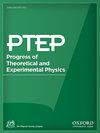非常规超导体中的马约拉纳零模理论
IF 8.3
4区 物理与天体物理
Q1 Physics and Astronomy
引用次数: 0
摘要
马约拉纳费米子是自旋-1/2 的中性粒子,是自身的反粒子,最初是由埃托雷-马约拉纳(Ettore Majorana)在粒子物理学中预言的,但对它们的观测仍然遥不可及。马约拉纳费米子的概念被借用到凝聚态物理学中,与粒子物理学不同的是,马约拉纳费米子是以零能量准粒子的形式出现的,可以通过结合电子和空穴来实现,因此被称为马约拉纳零模。在这篇综述中,我们将对非常规超导体中马约拉纳零模的基本特性及其在实验观测指标中的后果进行教学解释,并特别强调最初的理论发现。特别是,我们首先证明了马约拉纳零模是自共轭的,是非常规超导体边界上一种特殊的零能面安德烈耶夫束缚态。然后,我们探讨了一维自旋极化 p 波超导体中的马约拉纳零模,并在此基础上讨论了拓扑超导的形成以及在超导体-半导体混合体中的物理实现。在这一部分中,我们强调马约拉纳准粒子作为零能级边缘态出现,表现出电荷中性、自旋极化和空间非局域性等独特性质,这些性质从它们的能量和波函数中已经可以看出。接下来,我们讨论了通过分析获得的 p 波超导体的格林函数,并证明马约拉纳零模的出现总是伴随着奇频自旋-三胞胎配对的形成,这是马约拉纳零模自共轭性质的独特结果。最后,我们讨论了马约拉纳零模在隧道光谱学中的特征,包括反常接近效应和相位偏约瑟夫森效应。本文章由计算机程序翻译,如有差异,请以英文原文为准。
Theory of majorana zero modes in unconventional superconductors
Majorana fermions are spin-1/2 neutral particles that are their own antiparticles and were initially predicted by Ettore Majorana in particle physics but their observation still remains elusive. The concept of Majorana fermions has been borrowed into condensed matter physics, where, unlike particle physics, Majorana fermions emerge as zero-energy quasiparticles that can be engineered by combining electrons and holes and have therefore been coined Majorana zero modes. In this review, we provide a pedagogical explanation of the basic properties of Majorana zero modes in unconventional superconductors and their consequences in experimental observables, putting a special emphasis on the initial theoretical discoveries. In particular, we first show that Majorana zero modes are self-conjugated and emerge as a special type of zero energy surface Andreev bound states at the boundary of unconventional superconductors. We then explore Majorana zero modes in one-dimensional spin-polarized p-wave superconductors, where we address the formation of topological superconductivity and the physical realization in superconductor-semiconductor hybrids. In this part we highlight that Majorana quasiparticles appear as zero-energy edge states, exhibiting charge neutrality, spin-polarized, and spatial nonlocality as unique properties that can be already seen from their energies and wavefunctions. Next, we discuss analytically obtained Green’s functions of p-wave superconductors and demonstrate that the emergence of Majorana zero modes is always accompanied by the formation of odd-frequency spin-triplet pairing as a unique result of the self-conjugate nature of Majorana zero modes. We finally address the signatures of Majorana zero modes in tunneling spectroscopy, including the anomalous proximity effect, and the phase-biased Josephson effect.
求助全文
通过发布文献求助,成功后即可免费获取论文全文。
去求助
来源期刊

Progress of Theoretical and Experimental Physics
PHYSICS, MULTIDISCIPLINARY-PHYSICS, PARTICLES & FIELDS
CiteScore
12.00
自引率
5.70%
发文量
148
审稿时长
17 weeks
期刊介绍:
Progress of Theoretical and Experimental Physics (PTEP) is an international journal that publishes articles on theoretical and experimental physics. PTEP is a fully open access, online-only journal published by the Physical Society of Japan.
PTEP is the successor to Progress of Theoretical Physics (PTP), which terminated in December 2012 and merged into PTEP in January 2013.
PTP was founded in 1946 by Hideki Yukawa, the first Japanese Nobel Laureate. PTEP, the successor journal to PTP, has a broader scope than that of PTP covering both theoretical and experimental physics.
PTEP mainly covers areas including particles and fields, nuclear physics, astrophysics and cosmology, beam physics and instrumentation, and general and mathematical physics.
 求助内容:
求助内容: 应助结果提醒方式:
应助结果提醒方式:


